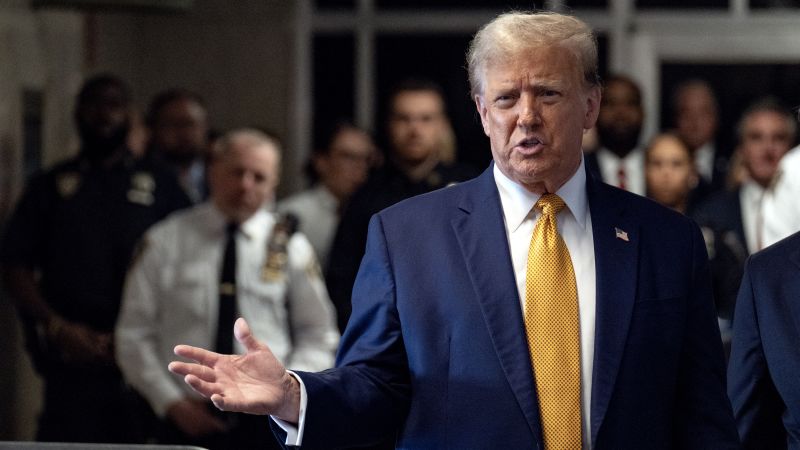In a recent court filing, prosecutors from the Manhattan district attorney’s office are urging the judge overseeing Donald Trump’s criminal hush money case to maintain the gag order that prohibits the former president from making statements about jurors, prosecutors, and their family members. The prosecutors argue that threats against them have escalated since the trial began.
While the prosecutors do not oppose lifting the portion of the gag order that prevented Trump from speaking about witnesses, they emphasize that they could prosecute Trump if his behavior violates harassment or other laws. Trump’s attorneys have requested Judge Juan Merchan to lift the gag order now that the trial has concluded. Trump was recently convicted on 34 counts of falsifying business records related to a hush money payment made to adult film star Stormy Daniels to influence the 2016 presidential election. His sentencing is scheduled for July 11.
Prosecutors stress that the gag order does not restrict Trump from discussing the case, including at public events like the upcoming presidential debate on June 27. However, they argue that maintaining the order’s protections for specific participants in the criminal proceeding is still crucial.
Trump’s legal team has assured the judge that he will refrain from attacking jurors, but prosecutors remain skeptical. They point out that Trump has indicated his intention to appeal the verdict, which may necessitate ongoing restrictions on his comments about prosecutors.
Citing threats against District Attorney Alvin Bragg and his team, prosecutors highlight the importance of safeguarding their safety even after sentencing. NYPD Sgt. Nicholas Pistilli’s affidavit reveals that the threat unit identified 61 threats against Bragg, his family, and staff in 2024, with a significant number occurring during the trial months. The office has also received nearly 500 threatening emails and phone calls since April 2024.
The prosecutors underscore that the need for protection may persist beyond sentencing, especially as the case moves into the appeals process. They argue that the safety of all involved in the trial remains a top priority as the legal proceedings continue.



